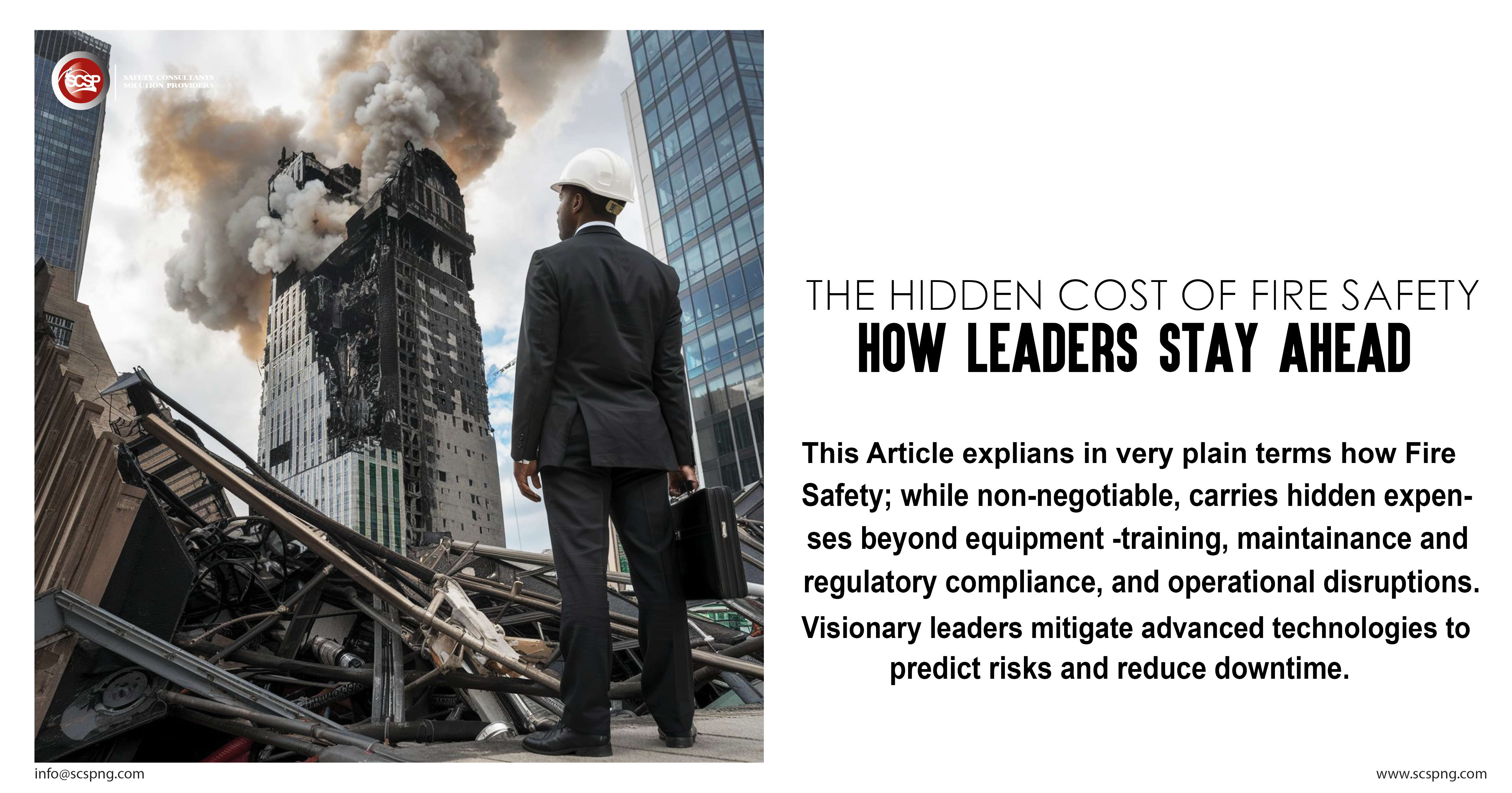FINANCIAL LOSS AND BUSINESS INTERRUPTION DUE TO FAILURE IN ENGINEERING RISK CONTROL – THE EBEANO CASE

With the evolving safety standards and the growing need for operational safety across various sectors of the Nigerian economy, the Authority Having Jurisdiction (AHJ) is working to implement policies to ensure the safety of citizens, assets, and the environment.
The “Prince Ebeano Supermarket” is a prominent business enterprise with a chain of outlets in major cities across Nigeria. It’s well-known that the multi-million-naira supermarket facility in Lokogoma, Abuja, was gutted by fire on Saturday, July 17, 2021.
Fire disasters in Nigeria often lead to blame games, typically focused on the slow response time or the extended E.T.A of the Fire Service, or the perceived lack of commitment by the AHJ to sustainable infrastructure development. However, this overlooks the principle that “Safety is everybody’s business” and the failure of business owners to uphold their responsibilities to both themselves and society. A notable example of this neglect is the unsafe acts and conditions leading to the “Otedola bridge inferno”.
Experts in fire safety systems understand that each fire disaster in Nigeria highlights a lack of preparedness for potential disasters. A critical analysis of these incidents often reveals that the root cause not only involves financial or reputational loss for business owners but also poses a significant risk to human lives.
Fire safety is a crucial consideration in building design and management, yet it is often overlooked. Concepts like firewalls are more commonly associated with IT security than with physical safety. Effective fire safety utilizes both passive and active means for risk detection and mitigation.
From an engineering perspective, fire risks can be reduced to residual levels or As Low As Reasonably Practicable (ALARP). This is achieved through proper engineering principles benchmarked to various performance criteria to prevent fire incidents or contain and extinguish incipient fires.
Employers have a legal duty to conduct fire safety risk assessments and ensure that their workplace, employees, and the general public are protected from fire hazards. This includes implementing necessary fire safety precautions (both active and passive), maintaining these systems, and providing employees with information, instruction, and training on fire prevention and response.
The fire disaster at the Prince Ebeano supermarket could have been controlled with proper safety measures. This incident underscores the importance of the Hierarchy of Controls in fire safety, including:
- Elimination: Removing the ignition source from unauthorized personnel. Eliminating a hazard is the most effective and sustainable way of dealing with it.
- Engineering Controls: Designing methods to reduce the hazard or exposure to it, such as installing active fire safety systems for detection, early warning, and suppression. For example, automatic fire detection and alarm systems, gas suppression systems, and fire sprinkler systems.
- Administrative Controls: Policies, procedures, rules, and practices that describe employee and non-employee operations within the supermarket facility. These controls act as a barrier between people and potential hazards.
- Personal Protective Equipment (PPE): The least effective type of control, particularly for supermarket customers, due to limited accessibility and the premium cost of fire retardant clothing.
In conclusion, the fire at the Prince Ebeano supermarket represents a significant failure in compliance with life safety standards, contradicting the principles of NFPA 101 Master Code.
Also Read:
- Structural Integrity Considerations Against Collapse in Case of Fire
- Cost Performance Approach of Quality Management for Fire Protection Services in West Africa
- Importance of Technical Safety










